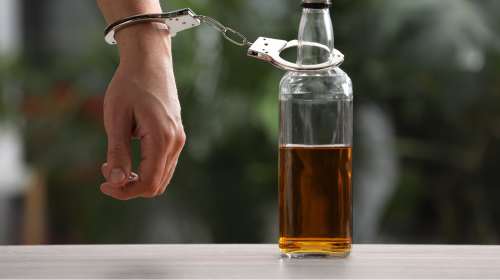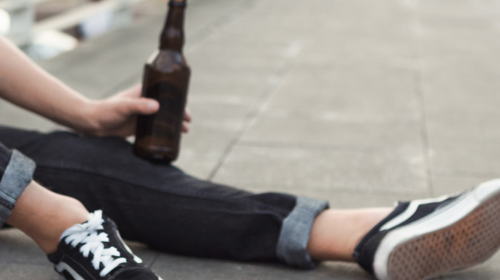Expert Insights
We’re used to hearing about how the Covid pandemic created a serious labor shortage in the United States. What we haven’t heard much about, however, is how addiction is creating a labor shortage on its own. This includes a labor shortage in Augusta, Georgia. Between 9% and 26% of workforce decline between 2020 and 2022 for those between the ages of 25 and 34 is believed to be due to a rise in opioid and methamphetamine addiction. Those numbers come from a paper released by The National Bureau of Economic Research. And it makes sense if you think about it. It’s very difficult to work on a consistent basis when you’re struggling with addiction. There are obviously times when you can’t gain access to your drug of choice, which brings on symptoms of withdrawal. And withdrawal sickness makes it nearly impossible to show up to work on time and perform at a high level. It just goes to show that addiction truly does impact nearly every facet of life, whether you initially realize it or not.
~ Nikki Seay
Cost of Drug Rehab in Augusta
The cost of Augusta drug rehab will depend on several factors. Some facilities offer free services, while other, more luxurious rehabs can cost thousands of dollars.
Some other factors that will affect your treatment costs are:3
Inpatient versus outpatient care (inpatient is typically more expensive)
The amenities offered, such as private rooms and gourmet food
Your length of stay at the rehab facility
If you have insurance, and how much of the costs your policy covers
Staff-to-patient ratios (lower ratios typically make the price go up)
Many Augusta drug rehabs offer payment plans, sliding-scale fees, scholarships, or other financial aid if you have trouble paying for treatment.
Low-Cost and Free Drug Rehab Centers in Augusta
 Unfortunately, costs have been an obstacle for people needing treatment. A 2019 study found that nearly 21% of people couldn’t afford to pay for the treatment they needed.4 Fortunately, Augusta offers free and low-cost rehabs in the area for those who need them.
Unfortunately, costs have been an obstacle for people needing treatment. A 2019 study found that nearly 21% of people couldn’t afford to pay for the treatment they needed.4 Fortunately, Augusta offers free and low-cost rehabs in the area for those who need them.
If you want to look for state-funded addiction treatment centers only, you can visit the government website, Substance Abuse and Mental Health Services Administration (SAMHSA), to see a directory of free rehabs and detox centers in Augusta.5
To qualify for free treatment, you may have to meet certain requirements, such as being a resident of Georgia, having an income below a certain threshold, and having no access to health insurance.
Does Medicare and Medicaid Cover Rehab Center Costs?
Yes, Medicare and Medicaid do cover rehab costs. The Affordable Care Act (ACA) recently mandated that all insurance policies issued under the state health exchanges, Medicare, and Medicaid, must help pay for costs in their programs.6
Medicaid
Medicaid is the largest provider of insurance in the country, covering over 72.5 million Americans.7 This medical program is funded by both the federal government and also by each state, which means that Georgia’s Medicaid program may look different from another state’s program. Many Augusta drug rehabs accept Medicaid as an insurance provider at their facility, but you have to meet certain eligibility requirements to get Medicaid coverage. Eligibility groups include low-income individuals, pregnant women, children, or those receiving supplemental security income (SSI).7
All Medicaid programs pay for some level of treatment for drug and alcohol addiction under their mental health services. These treatment programs typically include therapy, medication management, social work services, and peer support groups.8
Medicare
Medicare is also a federally funded medical program, but it does not receive funding from the state. This means the program is consistent throughout the country from state to state. To qualify for Medicare, you must be an American citizen, over the age of 65, or have a qualifying disability. Medicare covers a wide range of healthcare, including drug and alcohol rehab at the outpatient and inpatient levels, as well as medical detox treatment.8
Does Private Insurance Cover Addiction Treatment?
If you do not qualify for Medicaid or Medicare, you also have the option to obtain a private insurance policy. Many private policies cover rehab costs, but your out-of-pocket costs will vary widely.
Your insurance plan will most likely have a monthly premium cost, which is a recurring monthly amount you pay to enroll in the policy. Beyond your monthly premium, other costs are associated with a private insurance plan.
Co-Pays
The copay is a predetermined amount of money set by the insurance company that you are responsible for paying when attending an appointment or buying a prescription.
Deductible
A deductible is also a predetermined amount of money set by insurance that you will pay out-of-pocket in healthcare costs before the insurance company begins to cover a percentage of the costs.
Co-Insurance
Co-insurance is typically a percentage your insurance company will pay once you meet your deductible.
Out-of-Pocket Maximum
Your insurance company will begin covering 100% of healthcare costs once you reach the out-of-pocket maximum. You can also check the back of your insurance card for a phone number you can call to speak to your insurance provider directly about your plan details and rehab costs.
Augusta Drug and Alcohol Use Statistics

A study in 2016 found that about 8% of Georgia residents engaged in illicit drug use,

In the same time frame, just over 20% of GA residents engaged in binge drinking.1

Over 6% of residents had a substance use disorder related to alcohol or other drugs.1

125 people overdosed in Richmond County from January 17 to March 13, 2021
Drug and Alcohol Laws in Augusta
Georgia 911 Medical Amnesty Law: This law protects you from arrest, prosecution, or conviction of certain drug offenses when you seek medical assistance for someone with a drug overdose. Alcohol overdoses are also covered under Georgia’s 911 Medical Amnesty Law.
Incarceration Alternatives: All individuals in Georgia who are under the Department of Community Supervision now have access to every available incarceration alternative, including treatment services. This provides some individuals the opportunity to receive addiction treatment services in lieu of jail time.
Protections for Employees Seeking Addiction Treatment: The federal Family Leave and Medical Act (FLMA) and the Americans With Disabilities Act (ADA) both provide protection for your job if you voluntarily take time off of work to seek alcohol addiction treatment.
Addiction Treatment Settings
The rehabilitation process looks different for each person who goes through it. The process often starts with detox, but that alone does not make up the whole process. In fact, recovery is often a slow process over months, years, and even a lifetime. While detox is important, it is only the first step.
Many treatment centers offer detox along with ongoing care, including individual therapy, education, family therapy, and peer support.
Medical Detox
Detox is a necessary first step in rehab. It can be an uncomfortable one, though, as the substances and their effects begin to wear off in your body, you may experience unpleasant symptoms. This is why many facilities offer medical detox, where medicine can be used to alleviate some of the withdrawal symptoms.
Common withdrawal symptoms you may experience during a substance detox include:10
- Sleep disturbances, including nightmares and insomnia
- Feelings of confusion
- Anxiety, depression, or irritability
- Increased heart rate
- Shaking and/or tremors
- Sweating or clammy skin
- Headaches
- Nausea, vomiting, or diarrhea
- Loss of appetite and/or weight loss
Inpatient Drug Rehab in Augusta
Rehab offers varying levels of care, with inpatient being the most intensive. If you are admitted to an inpatient program, you will stay overnight at the facility for the duration of your treatment. This means you get 24-hour access to your treatment team. You may stay at the inpatient level for weeks, months, or even a year, depending on your situation.
The benefits of inpatient care include:11
- Daily structure and routines that help in recovery
- A safe, trigger-free environment
- Quick and easy access to the medical staff and medicine at any time of day or night
- A consistent support system built with others at the inpatient level
Step-Down Care
Varying levels of care are available at alcohol and drug rehab centers in Augusta. Often, when you leave an inpatient program, the recommendation will include step-down care. This means you will undergo a less intensive level of care until you are ready to end treatment altogether.
Lower levels of care include partial hospitalization programs (PHPs), which look a lot like inpatient programs but without the overnight stay. Another step down is an intensive outpatient program (IOP), which will provide many of the same services as a PHP but on a less frequent basis. The lowest level of care is a standard outpatient program, which often involves just one or two sessions a week compared to the higher number of treatment appointments in other outpatient programs.
Step-down care is recommended so you can take the structure and routines learned in inpatient care and put them into practice in your everyday life. This is a necessary part of the recovery process and gives you regular access to your treatment team as you re-enter your normal day-to-day activities.
Not everyone starts with an inpatient program and then steps down to outpatient. You can be recommended for any level of care based on your assessment and what the professionals think you need.
Aftercare and Relapse Prevention
Many programs include a relapse prevention plan and aftercare plan to help with your ongoing recovery needs. Relapse is a normal part of drug and alcohol addiction and shouldn’t be seen as a failure. Addiction is considered a chronic condition. In fact, relapse rates for addiction are similar to those of other chronic medical conditions.11
Relapse happens, not suddenly, but over time. The three stages of relapse are:12
- Emotional relapse: when you begin to ignore or bottle your feelings and do not express your needs to those around you
- Mental relapse: when you begin thinking about using the substance again, craving it, and minimizing the negative effects it had on you previously
- Physical relapse: when you start using the substance again
Many drug and alcohol rehabs in Augusta will educate you on the early signs of relapse and how to cope with them. These relapse prevention plans are usually a collaboration between you and your treatment team, so they are specific to your triggers and environment.
Your treatment team will also work with you to create an aftercare plan that may include attending Alcoholics Anonymous or Narcotics Anonymous meetings, staying in sober living, and continuing ongoing therapy.
How to Choose the Right Augusta Drug Rehab for You
You may be overwhelmed by the options available in Augusta. How do you decide which one is right for you? Some questions to ask include:13
- What type of care is best for you?
- Do you have specialized care needs, and does the facility provide them?
- What does the success rate look like for previous patients?
- How does the rehab center respond to relapses?
- Is the location convenient for you?
- What amenities does the rehab offer?
- What are the program rules regarding visitors?
What to Look for in a Quality Treatment Program
It can be difficult to know what to look for when choosing a quality treatment program. Many things contribute to the quality of an alcohol rehab center.
Program Accreditation: One simple way to gauge the quality of a program is to check if the center has any accreditations. There are two well-known accrediting organizations to look for; The Commission on Accreditation of Rehabilitation Facilities (CARF) and the Joint Commission, previously known as JCAHO. These organizations check to see if a program meets their standards of excellence, and if they do, they will award the center with an accreditation.
If your rehab center shows these on its website, it means the governing bodies found the center to meet their requirements for providing quality care.
Individualized Treatment Plans: It can be tempting for a program to use a one-size-fits-all mentality when creating treatment plans, as it is much easier and saves time for the staff. However, a quality rehab will consider your individual needs when deciding on a course of care for your recovery.
Individualized plans may incorporate faith-based interventions if you are a religious person. They may offer specialized therapy for those who have experienced trauma or provide an environment that feels safe to members of the LGBTQ community. When making an individualized plan, a rehab center can cater to your specific needs in many ways.
Use of Evidence-Based Interventions: You cannot always be certain that an intervention will work for you, but looking to methods that research has found to be effective is one way to feel confident going into recovery.
Some of the interventions that have proven to be effective by research include:13
- Cognitive-behavioral therapy
- Contingency management (using rewards for abstinent behavior)
- Motivational interviewing or motivational enhancement therapy
- Family therapy
- 12-step programs like NA or AA
Family Involvement: Many treatment centers will offer some level of family involvement in your recovery plan. This may include educational sessions for family members to learn about your condition and how to best support you, as well as family therapy sessions. Therapy often helps families work through difficulties caused by an alcohol or drug addiction.
Should You Travel for Drug and Alcohol Rehab in Augusta?
 How do you know if traveling to Augusta for drug and alcohol treatment is the best choice for you? These may be reasons why traveling is best:
How do you know if traveling to Augusta for drug and alcohol treatment is the best choice for you? These may be reasons why traveling is best:
- The treatment you need is not offered where you live
- You want to be in an environment like Augusta while you recover
- You want to be near friends or family in Augusta
- Choosing a city outside of where you live will offer some privacy and anonymity
- Your insurance covers treatment in Augusta
The city of Augusta lies on the Savannah River and offers multiple neighborhoods to consider for treatment.
Augusta’s Central Business District offers residential homes, apartment complexes, and nearby commercial enterprises.
Sand Hills is considered the safest neighborhood in Augusta and is near several schools, parks, and eateries.
Augusta State University’s Walton Way neighborhood is about a mile from the heart of Augusta. The area includes houses dating back to the late 1930s or earlier. With Colonial and Victorian-era homes, the architectural styles convey a sense of nostalgia.
The West Side neighborhood is just west of the Augusta National Golf Club and has crime rates 60% lower than those in the rest of the city.
Ropers Crossroads is an agriculturally based community 12 miles from downtown Augusta. It provides residents with opportunities to experience small-town living without being too far from the amenities of the city.
Resources
- Opioid Abuse. (n.d.). Office of Attorney General of Georgia Chris Carr.
- Augusta, Georgia Population 2022 (Demographics, Maps, Graphs). (n.d.). Worldpopulationreview.com.
- FindTreatment.gov. (n.d.). FindTreatment.gov.
- Substance Abuse and Mental Health Services Administration. (2019, February 5). 2016-2017 NSDUH State-Specific Tables.
- National Institute on Alcohol Abuse and Alcoholism. (n.d.) Drinking Levels Defined. National Institutes of Health.
- Broome, K.M., Knight, D.K., Joe, G.W., & Flynn, P.M. (2012). Treatment program operations and costs. Journal of Substance Abuse Treatment, 42(2), 125-133.
- Substance Abuse and Mental Health Services Administration. (2020). Key Substance Use and Mental Health Indicators in the United States: Results from the 2019 National Survey on Drug Use and Health. (HHS Publication No. PEP20-07-01-001, NSDUH Series H-55). Rockville, MD: Center for Behavioral Health Statistics and Quality, Substance Abuse and Mental Health Services Administration.
- Substance Abuse and Mental Health Services Administration. (2016, December 16). Directory of Single State Agencies (SSA) for Substance Abuse Services
- Healthcare.gov. (n.d.). Mental health & substance abuse health coverage.
- Medicaid.gov. (n.d.). Eligibility.
- Mentalhealth.gov. (2020, March 18). Health Insurance and Mental Health Services.
- American Psychiatric Association. (2013). Diagnostic and Statistical Manual of Mental Disorders, Fifth Edition. American Psychiatric Association Publishing.
- National Library of Medicine. (n.d.). Alcohol withdrawal.
- National Institute on Drug Abuse. (2022, March 22). Treatment and Recovery. National Institutes of Health.
- Melemis, S. M. (2015, September 3). Relapse Prevention and the Five Rules of Recovery. The Yale Journal of Biology and Medicine, 88(3), 325-332.
- National Institute on Alcohol Abuse and Alcoholism. (2021). Treatment for Alcohol Problems: Finding and Getting Help. National Institutes of Health.



